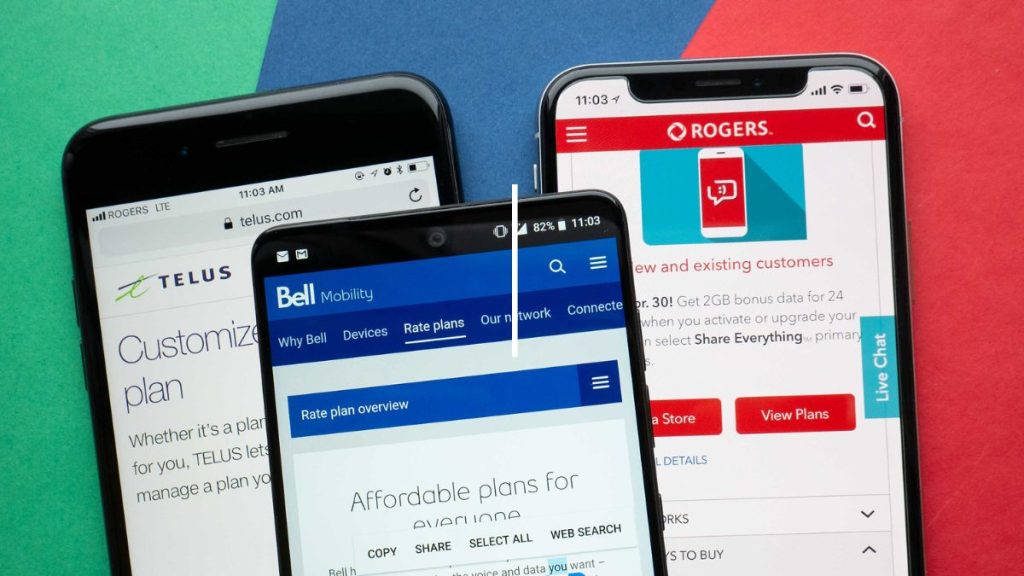Telus recently announced that they have introduced their acclaimed 5G network to Quesnel, British Columbia. This action is part of a larger $13 billion dollar investment from Telus. After Telus brings 5G to Quesnel, their plan is to introduce their technology across the province. Their $13 billion dollar investment is dedicated towards strengthening British Columbia’s infrastructure. Telus’ goal is for the entire province to have access to their 5G network by 2024, with the hopes of boosting B.C. ‘s economy after the impacts of COVID-19. For the remainder of the article, we’ll go over the details of the investment, and what we can expect for the future.
Telus’ Investment – 5G to Quesnel
Telus’ investment comes as no big surprise. Over the past year, Telus has invested millions towards bringing fibre optic internet to Whistler and New Westminster B.C. Further, this seems to be a trend across the country. In early 2020, the Canadian government announced Operation High Speed, a series of investments for hundreds of millions of dollars. For this operation, the federal government teamed up with the government of Quebec to introduce high-speed internet access to rural areas across the province.
With Operation High Speed and Telus’ prior investments in British Columbia, their intentions were quite clear. After the devastating events of the COVID-19 pandemic, millions of Canadians were forced indoors. As a result, they had to spend countless hours working or attending school from home. Unfortunately, many residents in more rural settings lacked the proper technology to do so. Thus, these investments marked the fact that high-speed internet access is a right, not a luxury. On the other hand, these recent investments from Telus are focused on 5G technology rather than high-speed internet. What does this mean for Canada? Will 5G be considered an essential technology, despite being so new?
Quesnel, B.C.
Quesnel is located in northern British Columbia, and remains a popular tourist destination to this day. Its beautiful forests and parks attract fans of mountain biking, fishing, hiking and much more. As such, it may be surprising to some that Telus is investing so much towards bringing 5G to a rural town like Quesnel. First off, 5G technology is not as much of a necessity as something like high-speed home internet. Mobile data is important, and highly necessary for countless Canadians. However, the current 4G speeds seem sufficient for allowing individuals to check for weather, directions or news when away from home. Meanwhile, the intense 1.7Gbps speed of Telus’ 5G network seems more situational.
Secondly, 5G technology is very new and expensive. While Telus’ other investments cost several millions of dollars, their 5G towers are costing billions. In addition, most people have yet to experience 5G technology, since only the latest smartphones are capable of connecting to it. Despite this, Telus’ plan is aiming to connect over 70% of Canadians to their 5G network by the end of 2021.
The Future of 5G
Although it may seem a bit pre-emptive for such a massive investment, it still marks an exciting event. Rather than viewing 5G as a necessary technology, it feels like it’s being treated as having significant potential. Before attaining mainstream appeal, companies like Telus are already investing billions to ensure its accessibility. Although 5G technology may not seem groundbreaking to everyone, Telus is expecting it to become incredibly popular and widely used. As Canadians, we should feel excited about 5G and the lengths corporations like Telus are investing in to ensure its availability.
After Telus brings 5G to Quesnel and the rest of B.C, what can we expect? Over the course of the next few years, we should expect more competition among companies to establish 5G towers. As 5G becomes more accessible, there will be a shift towards strengthening the technology to its limits. Overall, it won’t be too surprising if 5G becomes so sought-after that it becomes more of a necessity, and users refuse to settle for 4G LTE. Of course, all of this is a matter of opinion and speculation, but we’re always curious to know what you think! Feel free to leave a comment or write to us about how you feel regarding the future of 5G.








